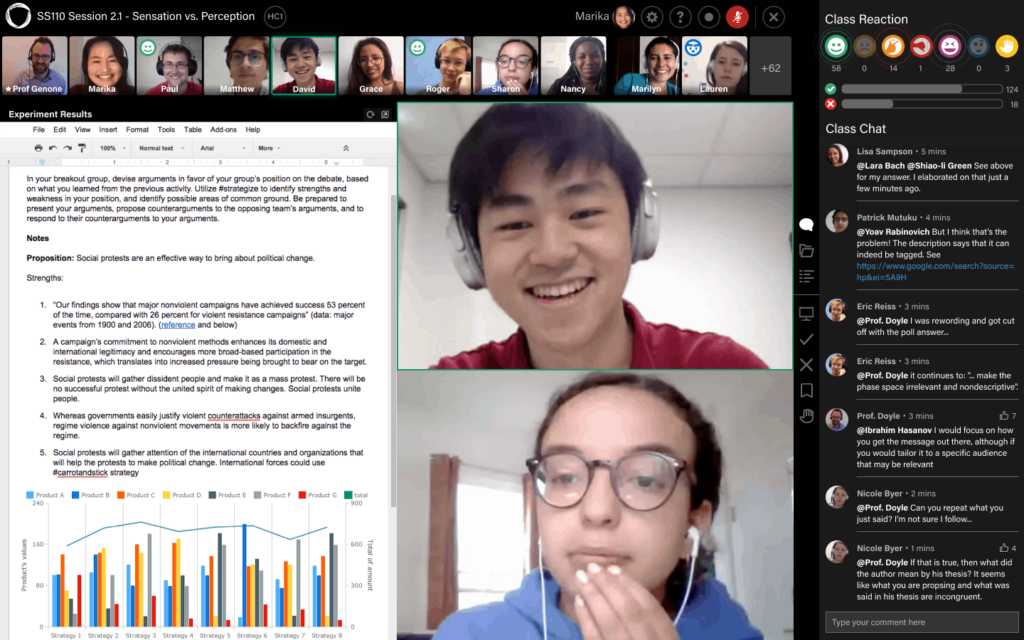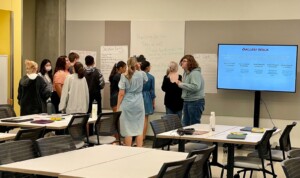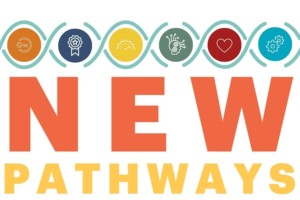New Standards of Quality: Minerva Baccalaureate and Debt Free College

For half a century, the initials AP and IB signified high school quality. The assessment systems are challenging and require a lot of reading and memorizing. Both have made some efforts to stress thinking skills but they remain discipline-based individual pursuits culminating in high stakes tests.
A new standard of quality was introduced today, the Minerva Baccalaureate. It’s a new interdisciplinary high school course of study designed around critical career competencies and pursued in an interactive video Forum.
There are three reasons the Minerva Baccalaureate is the new standard of quality. First, it’s engaging and demanding. In most high schools, most students are disengaged most of the time. In Minerva programs, 90% of learners are engaged over 90% of the time. It’s turbocharged engagement: it’s like TRX training for your brain. It’s as engaging and challenging as debate but less artificial.
Second, it’s work that matters. Projects and discussions are on relevant topics. “They build the skills that are most valuable in life and work–the tools necessary to be an effective change agent which include thinking critically and creatively, and communicating and interacting effectively,” said Minerva founder Ben Nelson. Third, learners receive specific real-time feedback on competencies. This is not about cramming for a multiple choice quizzes, it’s real feedback on real work in real time.
Robin Goldberg, Chief Experience Officer at Minerva, explains “The learning transcends subject matter in a way that will produce a more advanced level of understanding and engagement.”
The Minerva Baccalaureate will initially be offered by Laurel Springs School, a respected private online school. Starting today, they are enrolling a 9th grade cohort (sign up by September 1 to be part of the first cohort). The tuition of $13,000 is half of many private schools.
“We want to reimagine the high school curriculum,” said Nelson. “We want to teach young people how to think and instill quality decision making.”
The Laurel Springs Difference
Celebrating their 30th anniversary this year, Laurel Springs is a school that people trust and respect. They have small classes, supportive teachers, attentive counseling and a great track record of college placement.
Launching online in 1994, they “were arguably the first online school and have been an innovator all along,” said President Peter Robertson.
As a former AP History teacher and school board member whose district selected the IB program, Robertson notes that both were developed in the last century and that, “There is a lot of opportunity to help students integrate and make more practical use of knowledge.”
Laurel Springs piloted Minerva’s Forum in several classes with great success. “We have seen how Minerva builds skills and how Forum facilitates deep collaborative learning,” said Robertson.
Seniors in the Minerva Baccalaureate program will take the first year of the Minerva collegiate program and graduate from high school with 32 college credit hours.
Minerva Backstory
Two years after selling photo giant Snapfish to HP, I met Ben Nelson in a Latin American dive in San Francisco’s Mission District. He laid out an ambitious plan to create a better-than-the-Ivy university with tuition of $10,000 a year.
In 2011, he founded Minerva Project, a venture-backed startup that partnered with Keck Graduate Institute at Claremont to create Minerva Schools at KGI–what might be the most interesting and important higher education program in the world.
The undergraduate program features a rigorously designed curriculum that develops knowledge and skills in about 100 foundational concepts and habits of success. Learners (pre-pandemic) studied and applied their learning in seven cities.
With the May graduation of the second class of world changers, it’s safe to say that Nelson achieved his goal of creating the best university at a super low cost and featuring need-blind competency-based admissions.
Last April, Minerva offered its Forum platform to other educational institutions. In that announcement, Nelson said, “Our intention has been to enable other institutions to join the revolution.” He points to three Minerva breakthroughs: cross-contextual scaffolding for the habits and concepts, fully active learning, and a personalized platform that supports compelling learning experiences and detailed feedback.
The Forum platform supports real-time, synchronous seminars–which work equally well with a local or distant instructor and with groups up to 400. Class sessions are recorded and tagged so instructors can provide formative feedback to learners based on specific examples of learner performance.
Urban Scholars Program
Earlier this month Minerva announced a new super low-cost program with Paul Quinn College. The Urban Scholars Program is an accelerated interdisciplinary course of study for ambitious students that want to finish college in three years and are willing to work while they study.
“We wanted to offer something better than any university on the planet–better, faster, and cheaper–only $7,500 in out of pocket cost for Pell-eligible students. It’s a full Minerva education with Paul Quinn professionalization,” said Nelson.
Urban Scholars will earn a degree in Business Administration and Public Policy while addressing public health, criminal justice reform, and the wealth gap while developing relationships with national and community leaders.
Students will attend classes year-round (with a two-month winter break) for three years. There are no geographic restraints or residency requirements.
Like the famous Paul Quinn Work Program, Uban Scholars will work 15-20 hours a week after their first year.
“This is an empowerment program for changemakers,” added Nelson. “It’s a way to tilt the playing field in the right direction.”
The combination of the Minerva Baccalaureate and Urban Scholars Program will make available, in six years and at very low cost, what might be the best high school and college programs in the world.
For more, see:
- Minerva’s Innovative Platform Makes High Quality Higher Ed Personal and Affordable
- HigherEd Reinvented: Minerva Goes Global
- Minerva: The Intentional University
- Minerva: Better & Cheaper HigherEd
Stay in-the-know with innovations in learning by signing up for the weekly Smart Update.
This blog was originally posted on Forbes.







0 Comments
Leave a Comment
Your email address will not be published. All fields are required.